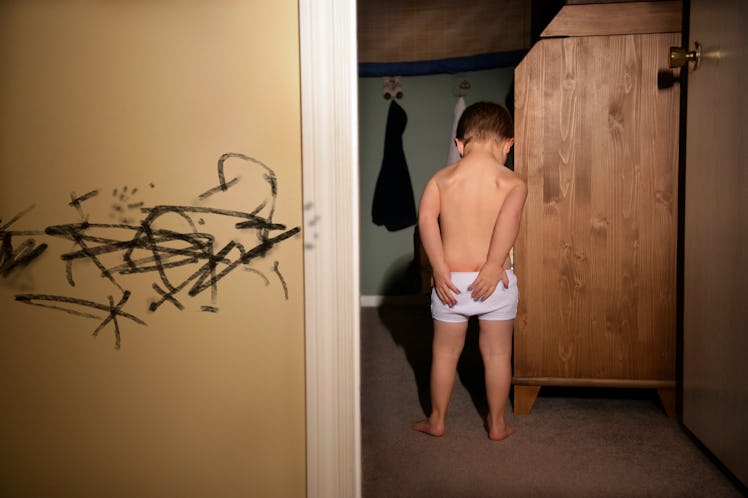Spanking Is Physical Abuse, Study Shows
Researcher says that drawing the line between spanking and physical abuse is "theoretically impossible."

More data has emerged suggesting spanking is both ineffective and harmful to kids. A study published in the Journal of Pediatrics has revealed that kids who are spanked have behavioral issues similar to children who have been neglected and abused. And the researchers are making a call for change.
“The question we need to consider when we talk about spanking is, how should we define hitting that’s okay?” says Julie Ma, Ph.D., lead researcher of the study and a professor of social work at the University of Michigan-Flint. “If spanking is not physical abuse, how do we define it? The line we’re trying to draw is theoretically impossible.”
Ma and her team set out to understand the effects of spanking as compared to adverse childhood experiences, or ACEs. As defined by the Centers for Disease Control and Prevention (CDC), ACEs are forms of child maltreatment that include physical abuse, neglect, and exposure to family violence, substance abuse, and mental health issues. ACEs are tracked by the CDC as a measure of community health because they increase the likelihood a child will engage in violence or drug abuse, or suffer mental health issues themselves.
To tease out the effect of ACEs compared to spanking, researchers compared longitudinal data from more than 2,000 families collected in the Fragile Families and Child Wellbeing Study. They then compared the reported problem behaviors of children whose parents reported ACEs and those who reported only spanking their child.
“Even after we controlled for what’s happening in terms of ACES, spanking was a predictor of kids’ aggressive behavior,” Ma says.
That prompted an important question: If the effects of spanking were essentially indistinguishable from the effect of ACEs like abuse and neglect, then shouldn’t spanking be considered an adverse childhood event? It would seem logical, but the change would likely require a shift in the legal definition of abuse.
Currently, the majority of state laws draw a line between spanking and physical abuse at the point a blow leaves a mark on a child’s body. If physical discipline does not leave welts, bruises, or contusions, then it is not considered abuse. But although a child’s body can reveal acts of violence, it’s harder to see the very real and serious effects on a child’s mind. New research shows, for example, that corporal punishment such as spanking may actually affect brain activity and development in kids in a way that makes them hypersensitive to making errors themselves and less responsive to positive events and rewards.
“As adults, we understand a little more clearly what is and what isn’t abuse in this country because we have legal definitions. But to kids we, can’t explain that spanking is not hitting in a legal sense. So what kids are perceiving may be different,” says Ma. “If kids are hit, they are hit. Being exposed to violence is what is harming kids.”
From a global perspective, the United States is lagging behind much of the world in our attitudes toward spanking. In fact, 19 American states still allow corporal punishment like paddling in schools. Meanwhile, the United Nations considers spanking a form of childhood violence, and of the 37 member countries of the Organization for Economic Co-operation and Development (OECD), of which the U.S is one, 24 (including Germany, Israel, and Japan) have banned spanking in all settings.
Luckily, parental sentiments about spanking seem to be changing. A 2020 study by the University of Minnesota found that Gen Xers and Millennials, the current generation of parents with young children, are less inclined to hit. That study reported that of parents with 2- to 4-year-old children in 2017, only 35% said they spank their child. That’s a nearly 30% decrease from 1993 when 60% of parents the same age said they spanked.
But any kid being hit is too many. And spanking will likely linger in the United States until the legal definition of abuse is changed.
“Hopefully any hitting by caregivers will be considered abuse,” says Ma. “That is the definition in countries that have adopted a legal change in defining spanking and other ways of hitting as abusive parental behavior.”
This article was originally published on